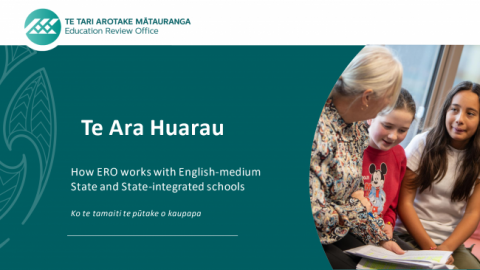
Download this slide pack to learn more about Te Ara Huarau, our approach to English-medium state and state-integrated school reviews.

Download this slide pack to learn more about Te Ara Huarau, our approach to English-medium state and state-integrated school reviews.